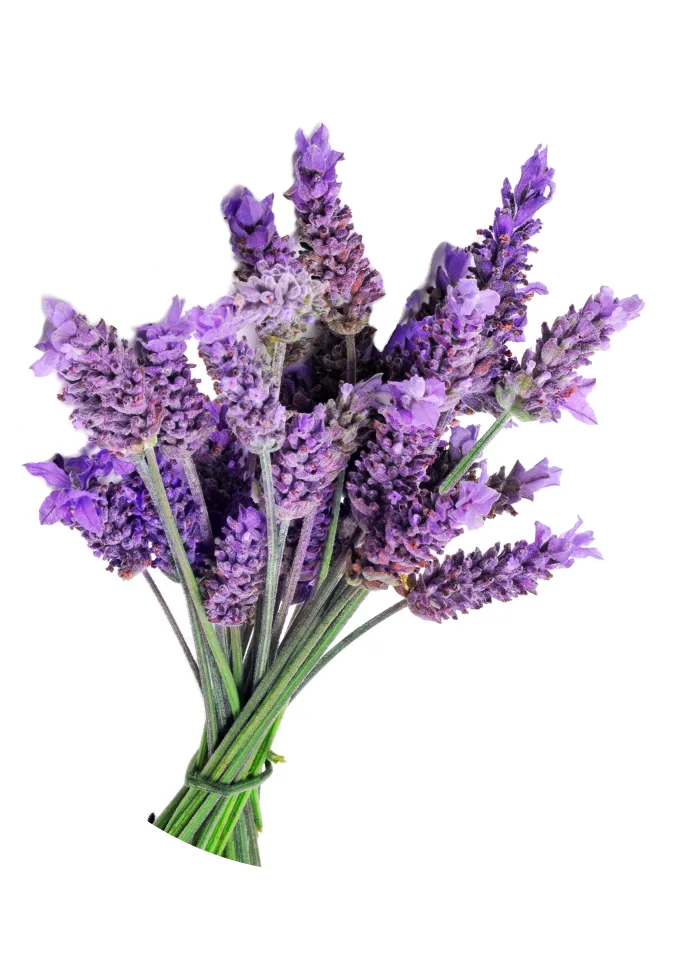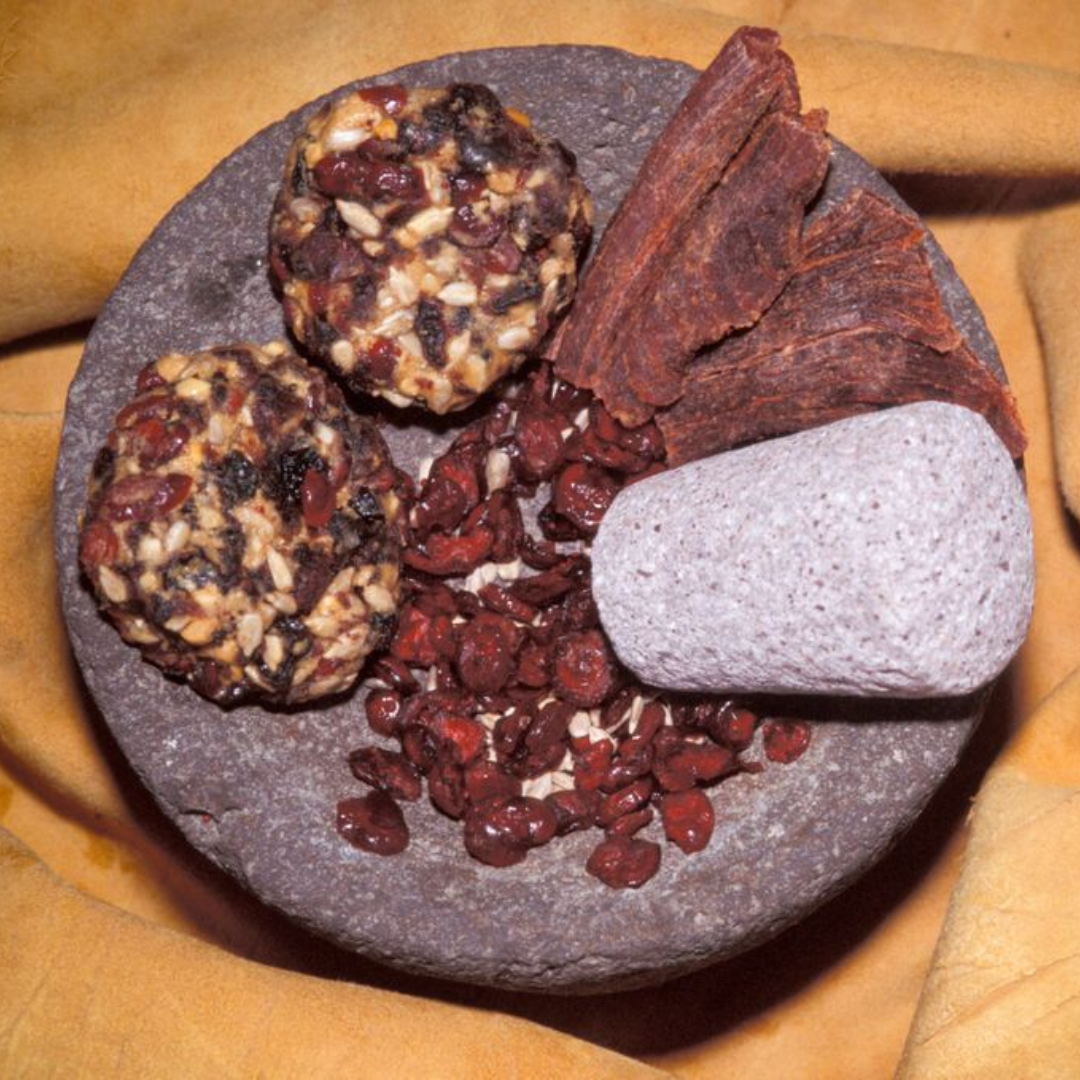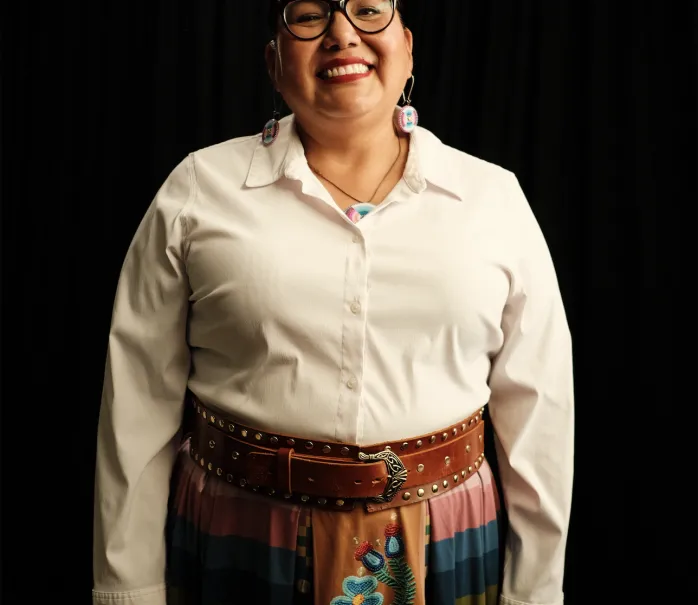Wasná is the Lakota term for pemmican, a food made of dried meat, fat, and berries known for its high nutrient density and stable shelf life. Pemmican has been an important part of North American Indigenous foods for centuries due to its nutritional value. Wasná is traditionally made of meat from large game such as bison, deer, or caribou, but fish is also used in some instances. The meat is cut into thin slices and then dried until the consistency is hard and brittle. The dried slices are broken up and pounded into a powder and mixed in equal parts with melted fat and sometimes berries such as blueberries, chokecherries, saskatoon barriers, or cranberries. The mixture is then left to harden in rawhidebags and can be consumed as jerky, fried, or cooked in a stew. Due to its portability, nutritional value, and long lifespan, pemmican has often been used as a travel or survival food and is used today among Indigenous communities for personal, communal, and ceremonial uses.


